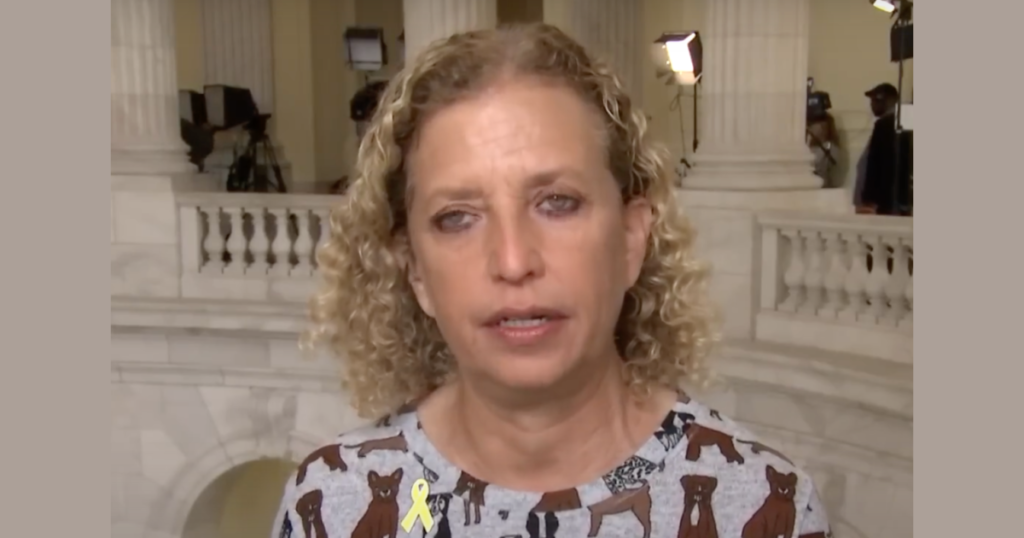In recent years, Rep. Debbie Wasserman Schultz (D-FL) has remained largely under the radar, following a significant scandal involving Imran Awan, an IT aide in her office. Awan, along with his two brothers from Pakistan, was contracted to oversee IT operations for several Democratic officials, including Wasserman Schultz, and received millions in compensation. However, they were relieved of their positions in February 2017 after suspicions arose regarding unauthorized access to specific computer networks. The controversy drew criticism toward Wasserman Schultz, particularly concerning her defense of Awan, who ultimately reached a plea deal with the Justice Department. Despite her controversial past, Wasserman Schultz has recently resurfaced in the media, launching a shocking attack on President Trump’s nominee for Director of National Intelligence, Tulsi Gabbard.
Tulsi Gabbard, a veteran and Army reservist, has a notable military background, having served in Iraq and having been promoted to lieutenant colonel in the U.S. Army Reserves just three years prior. President Trump announced Gabbard’s nomination to the key intelligence position, praising her extensive experience and asserting she would advocate for constitutional rights while bringing a fearless spirit to the Intelligence Community. With her dual backgrounds as a former Democratic presidential candidate and a current Republican, Trump highlighted her broad bi-partisan appeal amid the announcement.
In a recent segment on MSNBC, Wasserman Schultz made baseless allegations against Gabbard, controversially labeling her a “Russian asset.” She asserted that most assessments consider Gabbard to be such, claiming it would be dangerous for someone with potential ties to Russia to oversee the intelligence community. When pressed by the host of the show, Wasserman Schultz firmly attributed this designation to Gabbard, stating there was “no question” that she could be a Russian asset in such a pivotal role managing vital intelligence information and secrets. This unsubstantiated claim not only raised eyebrows among viewers but also sparked outrage online.
Wasserman Schultz’s inflammatory accusation towards Gabbard drew immediate backlash from various factions on social media, with prominent figures highlighting and criticizing her remarks. Those responding pointed out her past connections with Awan and questioned the integrity of someone making such severe claims, branding her a “Pakistani asset” and recalling her controversial hiring practices that allegedly compromised national security. Users referenced that Wasserman Schultz had hired Awan, who was implicated in several security breaches, and chastised her for publicly questioning the loyalties of a decorated veteran such as Gabbard.
The criticism intensified as a chorus of voices voiced the sentiment that political figures should face ramifications for defaming others, particularly in such a public forum as national television. Commentators condemned the serious nature of Wasserman Schultz’s accusation, suggesting her remarks amounted to slander against Gabbard, who has served her country honorably. The idea that a political figure could seemingly defame another without facing consequences drew ire from various perspectives, emphasizing the need for accountability in political discourse.
Furthermore, political commentators and analysts began revisiting Wasserman Schultz’s tenure as the head of the Democratic National Committee (DNC) amid the fallout from the allegations. Some pointed to her resignation from the DNC following a damaging email leak that many attributed to Russian hacking, which garnered potential risk to her credibility. Collectively, critics asserted that the juxtaposition of Wasserman Schultz’s past scandals and her current accusations against Gabbard highlighted a troubling double standard in political conduct and raised critical questions about the integrity and motivations behind such public declarations, thereby igniting ongoing debates surrounding the implications of political attacks on national figures.

